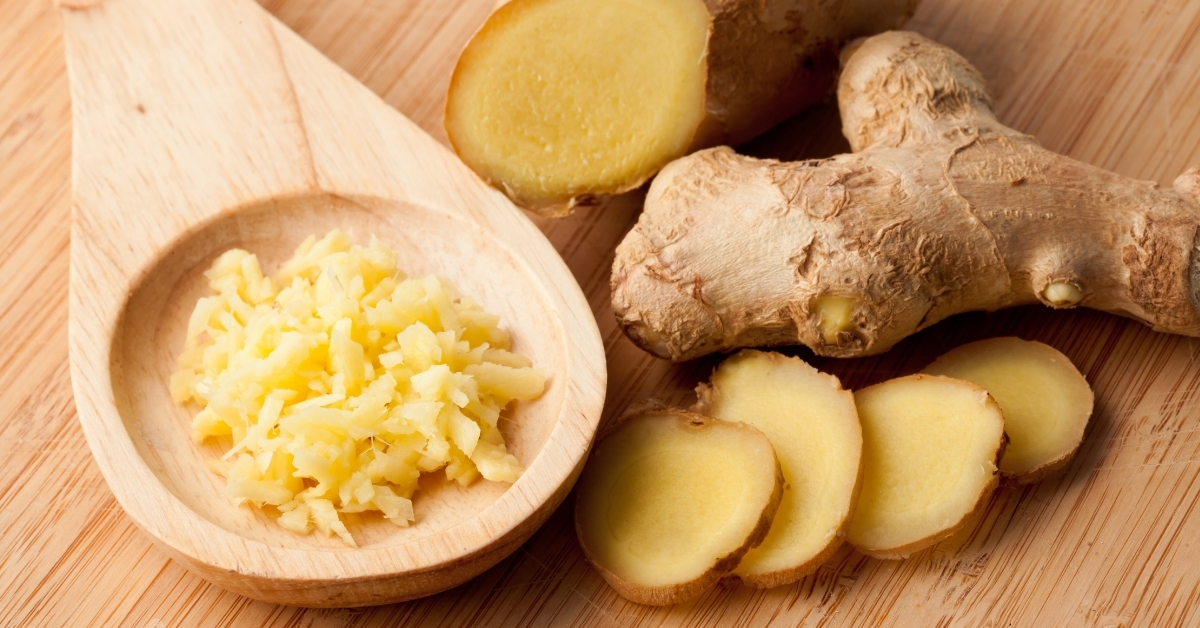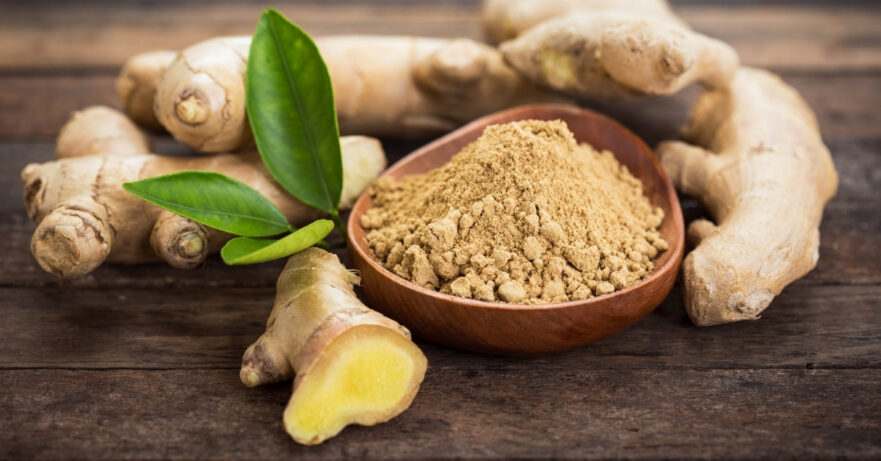In this monograph about ginger:
📖 Introduction | 🌱 Botanical Description | 📜 Traditional Uses | 🔍 Phytochemistry | ✨ Applications and Uses | 🛡️ Safety Profile
📖 Introduction
Ginger (Zingiber officinale) is a widely used herb known for its culinary and medicinal properties. Its root, or rhizome, is valued in herbal medicine due to its therapeutic effects, which range from digestive support to anti-inflammatory actions.
| English Name | Ginger |
| Latin Name | Zingiber officinale |
| Parts Used | Rhizome |
| Traditional Uses | Motion sickness, poor circulation, chilblains, cramps, fever, sore throats |
| Herbal Actions | Antispasmodic, stimulant, carminative, rubefacient |
🌱 Botanical Description
Scientific Classification
Ginger is a member of the Zingiberaceae family.
Physical Characteristics
The plant features thick, fibrous roots (rhizomes), green reed-like stalks (pseudostems), and aromatic yellow-green flowers.
Natural Habitat and Cultivation Details
Native to Southeast Asia, ginger thrives in warm, humid climates. It is now cultivated worldwide, particularly in tropical regions, and grows best in rich, well-drained soil.
📜 Traditional Uses
Ginger has been used for thousands of years, especially in Asia, to manage various ailments such as nausea, digestive issues, and common cold symptoms. Its use in traditional medicine spans numerous cultures, and it is also employed to enhance circulation and reduce inflammation.

🔍 Phytochemistry (Active Constituents)
Ginger contains several compounds that contribute to its medicinal properties:
- Volatile oils, including sesquiterpenes like zingiberene, are thought to aid digestion.
- Oleoresin includes gingerols and shogaols, which have anti-inflammatory and antioxidant effects.
- Lipids help with the absorption of active compounds.
✨ Applications and Uses
Ginger is utilized in various forms in herbal medicine:
- Digestive health: It helps treat nausea, motion sickness, and indigestion.
- Circulatory health: Ginger promotes blood flow, aiding in treating chilblains and circulatory issues.
- Anti-inflammatory: It is effective in reducing inflammation in conditions like rheumatoid arthritis.
- Antioxidant and antimicrobial: These properties make ginger valuable in food preservation and as a natural remedy for infections.
Research supports these uses, notably ginger’s effectiveness in reducing nausea and inflammation.
🛡️ Safety Profile
Ginger is generally safe for most people when used in culinary or therapeutic doses.
It may interact with anticoagulants by affecting platelet aggregation, potentially enhancing the effects of these drugs. In high doses, it may cause mild stomach upset.
While commonly used to alleviate morning sickness in pregnancy, it should be used cautiously and under supervision due to concerns about its effects at higher doses.
Always consult a healthcare provider before starting any new treatment, especially if you are pregnant, nursing, or taking other medications.
📃 Related Posts
🌱 Related Herbs

